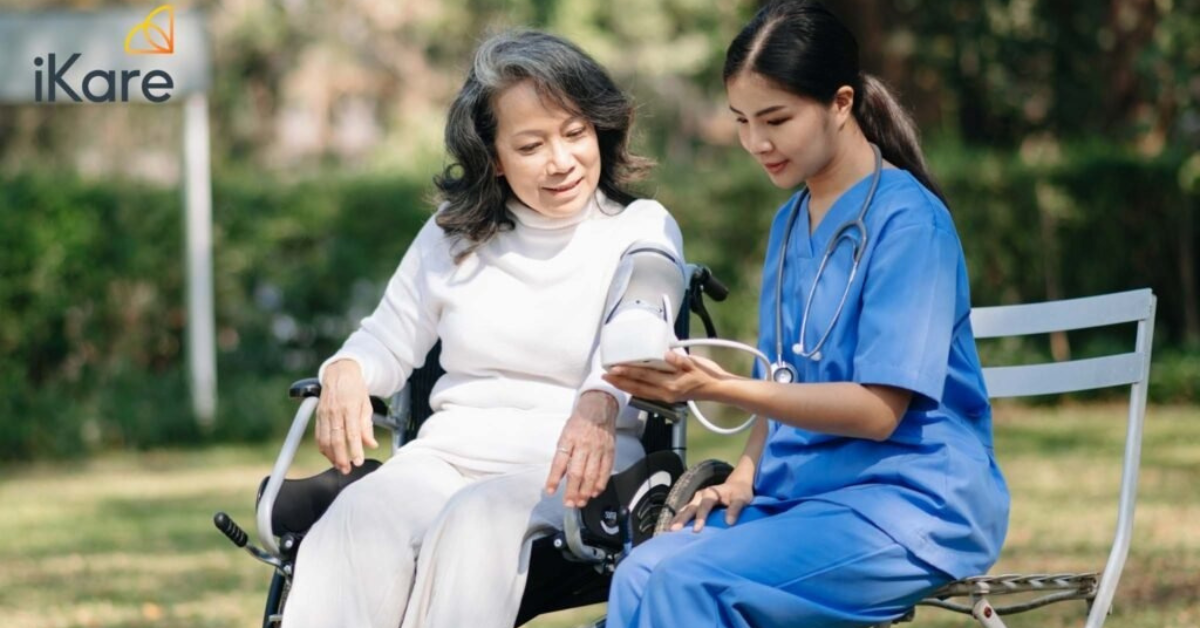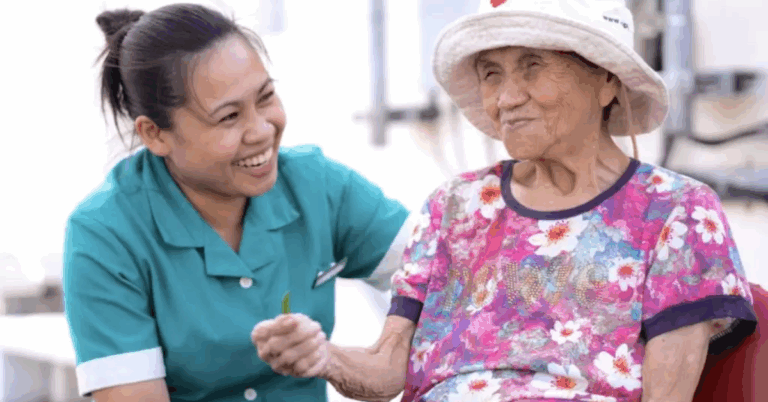Treating Dementia in Singapore: Care Options, Therapies, and Support for Families
Dementia is a progressive neurological condition that affects memory, thinking, behavior, and the ability to perform everyday activities. With Singapore’s rapidly aging population, dementia has become an urgent public health concern. According to the Ministry of Health, the number of people living with dementia in Singapore is expected to exceed 100,000 by 2030. As families seek support and solutions, understanding the options for Treating Dementia Singapore is essential. While there is currently no cure for dementia, early diagnosis and comprehensive care strategies can significantly improve quality of life and slow symptom progression.
What Causes Dementia?
Dementia is not a specific disease, but rather a syndrome that includes various symptoms associated with cognitive decline. It is most commonly caused by Alzheimer’s disease, but other causes include vascular dementia, Lewy body dementia, and frontotemporal dementia. Risk factors include aging, genetics, stroke, head injuries, and lifestyle conditions such as hypertension, diabetes, and smoking. Early detection through memory screening and neuropsychological evaluation is critical in developing a treatment plan that can manage symptoms effectively.
Can Dementia Be Treated?
While dementia cannot be reversed or cured, it can be managed through a combination of medical, therapeutic, and psychosocial interventions. In Singapore, the treatment of dementia focuses on slowing cognitive decline, managing behavioral symptoms, and improving the quality of life for both patients and caregivers. Treatment plans are highly individualized and may include medications, lifestyle changes, cognitive therapies, and supportive care services.
Medical Treatments for Dementia in Singapore
Several medications are approved for managing dementia symptoms in Singapore. These include:
1. Cholinesterase Inhibitors (e.g., Donepezil, Rivastigmine, Galantamine)
These drugs help increase levels of acetylcholine in the brain, which can improve memory and cognition in mild to moderate Alzheimer’s disease.
2. NMDA Receptor Antagonists (e.g., Memantine)
Used in moderate to severe Alzheimer’s disease, these medications help regulate glutamate activity to protect brain cells from damage.
3. Antipsychotic and Antidepressant Medications
These may be prescribed to manage aggression, hallucinations, anxiety, or depression, which are common behavioral symptoms of dementia. These are used cautiously due to potential side effects in elderly patients.
4. Supplements and Nutritional Support
Some doctors may recommend omega-3 fatty acids, vitamin E, or ginkgo biloba, although evidence on their effectiveness is mixed.
All medications should be prescribed and monitored by a qualified physician, typically a neurologist, psychiatrist, or geriatrician.
Non-Medical Approaches to Treating Dementia
In addition to medical treatment, non-pharmacological interventions play a crucial role in dementia care. These therapies help maintain function, promote emotional well-being, and reduce caregiver stress.
1. Cognitive Stimulation Therapy (CST)
CST is a structured group or individual activity program designed to stimulate thinking, concentration, and memory. It is one of the most evidence-based psychosocial treatments for mild to moderate dementia.
2. Music and Art Therapy
These activities help engage patients emotionally and cognitively, especially those in later stages of dementia. Music, in particular, can evoke memories and improve mood.
3. Reminiscence Therapy
Involves discussing past experiences and using photos, music, or objects to stimulate memories. This approach helps strengthen identity and social connection.
4. Physical Exercise
Regular movement through walking, tai chi, or light stretching helps maintain motor skills, circulation, and mood stability.
5. Occupational Therapy
Occupational therapists help dementia patients perform daily tasks safely and adapt their home environment to reduce risk.
6. Behavioral Therapy
Used to address agitation, aggression, and other difficult behaviors by identifying triggers and implementing coping strategies.
Where to Get Dementia Treatment in Singapore
1. Public Hospitals and Memory Clinics
Specialist dementia care is available at memory clinics in public hospitals such as:
-
National Neuroscience Institute
-
Tan Tock Seng Hospital Memory Clinic
-
Khoo Teck Puat Hospital
-
Changi General Hospital
-
Ng Teng Fong General Hospital
These facilities offer diagnostic services, medication management, psychological counseling, and referrals for support services.
2. General Practitioners and Polyclinics
GPs and polyclinic doctors are increasingly trained to screen for dementia and manage stable patients in primary care settings. They can refer patients to specialists for more advanced care.
3. Dementia Day Care Centres
Centres such as those run by NTUC Health, St. Luke’s ElderCare, and Apex Harmony Lodge offer therapeutic programs, cognitive stimulation, and medical monitoring in a safe daytime environment.
4. Home-Based Dementia Services
Providers like iKare Home offer in-home dementia care support, including personal care, cognitive activities, behavior management, and caregiver education.
Support for Dementia Caregivers in Singapore
Caregivers play a vital role in dementia treatment. However, they often face high levels of stress, fatigue, and emotional burden. Fortunately, several resources are available:
1. Caregiver Training
Programs offered by AIC, hospitals, and home care providers teach caregivers how to manage symptoms, communicate effectively, and handle emergencies.
2. Respite Care
Short-term care services, including home respite or temporary stays at nursing homes, give caregivers time to rest and recharge.
3. Support Groups
Organizations such as Dementia Singapore offer support groups for caregivers, providing a safe space to share experiences and access guidance.
4. Counseling Services
Caregivers experiencing burnout or depression can seek mental health support through community counselling programs or helplines.
Financial Support for Dementia Treatment in Singapore
1. Community Health Assist Scheme (CHAS)
CHAS cardholders receive subsidies for GP visits, chronic condition treatment, and selected dementia-related services.
2. MediSave and MediShield Life
MediSave may be used for outpatient dementia treatment under the Chronic Disease Management Programme (CDMP). MediShield Life covers hospitalizations and certain procedures.
3. CareShield Life and ElderShield
These long-term care insurance schemes provide monthly payouts to severely disabled individuals who require help with at least three Activities of Daily Living (ADLs).
4. Home Caregiving Grant (HCG)
Provides $250 per month to families caring for a loved one with moderate to severe disability at home. This includes those with dementia.
5. Government Subsidies via AIC
Subsidies are available for dementia day care, home care, and nursing home services through means testing and functional assessments.
Tips for Managing Dementia at Home
-
Establish a daily routine to reduce anxiety and confusion
-
Simplify tasks and use visual cues for reminders
-
Maintain a calm environment to minimize agitation
-
Use memory aids like labels, clocks, and photo albums
-
Encourage independence in simple tasks to boost self-esteem
-
Monitor nutrition and hydration regularly
-
Ensure home safety by removing trip hazards and installing grab bars
-
Stay patient and empathetic, especially during episodes of confusion or aggression
Role of iKare Home in Dementia Treatment
At iKare Home, we understand that treating dementia goes beyond medication. Our approach combines compassionate care, cognitive engagement, and support for families. Our dementia care services include personalized home visits by trained caregivers, behavior and routine management, medication reminders, therapeutic exercises, caregiver training and coaching, and coordination with doctors and allied health professionals. Whether your loved one is in the early stages or requires advanced care, we offer flexible plans to match your family’s needs and help you access relevant subsidies and grants.
Frequently Asked Questions (FAQ)
Can dementia be cured in Singapore?
Currently, there is no cure for dementia. However, early diagnosis and treatment can help slow its progression and improve quality of life.
Where should I go for a dementia diagnosis in Singapore?
You can start at a polyclinic or family clinic for an initial assessment. If necessary, you will be referred to a memory clinic at a public hospital.
What kind of doctor treats dementia?
Neurologists, geriatricians, and psychiatrists are commonly involved in diagnosing and managing dementia.
Is dementia treatment covered by MediSave?
Yes. Treatments under the Chronic Disease Management Programme (CDMP) are partially claimable through MediSave.
Can dementia patients be treated at home?
Yes. Many services offer home-based dementia care, including iKare Home, which allows patients to receive support in familiar surroundings.
Final Thoughts
Treating dementia in Singapore requires a comprehensive and compassionate approach that involves medical support, cognitive therapies, caregiver education, and access to community resources. While there may not be a cure, timely intervention and structured care can make a significant difference in the lives of patients and families. With the right treatment strategy and support network, individuals with dementia can continue to live meaningfully and with dignity. At iKare Home, we are committed to walking this journey with you. Contact us today to learn more about our dementia care services and how we can help support your loved one with expert, respectful, and personalized care.







